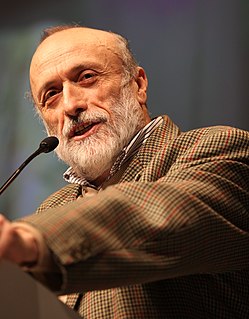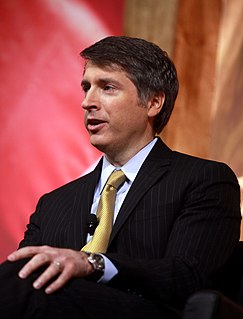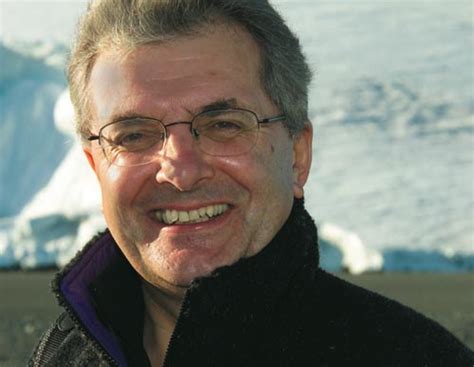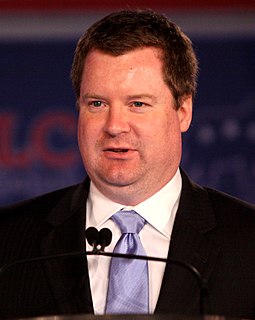Top 568 Co2 Emissions Quotes & Sayings - Page 10
Explore popular Co2 Emissions quotes.
Last updated on November 8, 2024.
I have felt for a long time that the pathway to solving the climate crisis is through the building of a massive grassroots army of men and women who will go out there and win the conversation on climate, and persuade businesses, and universities, and towns to switch to renewable energy and to reduce emissions. And the big change from ten years ago is that people are way more receptive, not only to the message that we have to act, not only to the message that now we can act, we have the solutions now - that's the biggest change - but also willing to make a commitment that we will act.
Joschka Fischer was a Green Party politician and Germany's foreign minister. We hired Mr. Fischer, as well as former US Secretary of State Madeleine Albright, as advisors because we, as an automaker, want to know, for example, how new emissions laws will develop in the United States, Europe and Asia. Fischer and Ms. Albright have diverse contacts worldwide. They can call our attention to trends early on, information from which we can benefit.
A billion homo sapiens are added every 11 years to the planet. The hypertrophy of a single species pushes other life-forms out of bed and into extinction. The decline of biological diversity is real and severe. The alarming loss of soil fertility, forest cover, and coral reef viability and the release of fossilized CO2 that nature put away 300 million years ago in its march toward greater diversity - all these "losses" and many others are the result of one life-form annihilating other life-forms in its immoral confusion of "dominion" with "domination."
Sometimes people will have a heart attack or some devastating personal loss, and after that, their political views change completely, and their behavior changes completely. It's not because somebody persuaded them to look at the graph on CO2 and temperature, and they finally saw the evidence and were persuaded. Something else changed that allowed them to see and to hear. What is that something else? How can we cultivate that in people without them having to go through a heart attack? The interpersonal things we do change the substructure of our systems. They are political.
I know we need more nuclear power in order - nuclear power, after all, is not dependent on fossil fuels and emits no greenhouse gases. I believe we're going to be able to have coal-fired plants that have zero emissions. We need to work on carbon sequestration technologies. I mean, there's a lot we can do together and achieve the objective, which a lot of people want, which is the reduction of greenhouse gases, and at the same time, have viable economic growth.
Mr. Vice President, the most fiscally conservative thing this government has ever done, is to invest massively in the green part of the recovery. Because those green dollars are the hardest working dollars in the history of American politics. That same dollar that is being used to cut energy bills, is also cutting global warming gas emissions, is also cutting unemployment, is also cutting poverty, through retrofits it's also raising the value of homes, is also by cleaning the air, cutting asthma rates.
On Earth Day I made a commitment to reduce our emissions of greenhouse gases to 1990 levels by the year 2000. And I asked for a blueprint on how to achieve this goal. In concert with all other nations, we simply must halt global warming. It is a threat to our health, to our ecology, and to our economy. I know that the precise magnitude and patterns of climate change cannot be fully predicted. But global warming clearly is a growing, long-term threat with profound consequences. And make no mistake about it, it will take decades to reverse.
...if we all turned down the thermostat in our house by just one degree, we would save over £650 million worth of energy and nearly nine million tonnes of carbon emissions every year. That would be the equivalent of taking three million cars off our roads...we can bring about a Green Consumer Revolution in this country to improve our lives, enrich our economy and protect our environment.
We need a firm cap on carbon emissions from fossil fuels. No coal, oil, or gas could enter the economy until the buyer had a permit. All permits would be auctioned by the federal government, and the number of permits auctioned would be decreased by three percent per year. Permits could be traded, but they could not be created out of whole cloth by companies that plant forests or dump iron filings at sea.
Although population and consumption are societal issues, technology is the business of business. If economic activity must increase tenfold over what it is today to support a population nearly double its current size, then technology will have to reduce its impact twenty-fold merely to keep the planet at its current levels of environmental impact. For example, to stabilize the climate we may have to reduce real carbon emissions by as much as 80 percent, while simultaneously growing the world economy by an order of magnitude.
If food was no longer obliged to make intercontinental journeys, but stayed part of a system in which it can be consumed over short distances, we would save a lot of energy and carbon dioxide emissions. And just think of what we would save in ecological terms without long-distance transportation, refrigeration, and packaging--which ends up on the garbage dump anyway--and storage, which steals time, space, and vast portions of nature and beauty.
The horn of dilemma of energy politics is what really drives concern about this energy in this country, at the gut level for most people, is high gas prices. And if you really want to fight global warming and try to reduce our carbon emissions, the cleanest, easiest, most rational way to do it would to make the price of gas even higher through very stiff gas prices.
Not wasting energy. It is the least sexy, but the single most important and always the least expensive. You would be very interested in a report by the McKinsey consulting firm that concluded that 40 percent of everything that we have to do to mitigate our emissions are net economic winners. They are cost effective and the most cost effective is not wasting energy. That's actually going to be the largest part of this whole journey, I believe - using less energy with the same beneficial results.
My wife and I have purchased two hybrids. We bought a 3 kw photovoltaic unit. We recycle and offset our carbon emissions on the Internet. We turn things off. But we also spend two nice salaries every year, and here's the dirty little secret - our environmental footprint is HUGE, I'm sure. We've all got to do what we can in our individual lives, but we've also got to drive the systemic changes that will make the big differences.
First, we must stop wasting energy. A quarter of the UK's carbon emissions come from the home. Our housing stock - the oldest in Europe - is costing us the earth... After transport, heating is the second biggest driver of energy demand in Britain. British Gas research suggests that householders who put in energy efficiency measures cut their gas consumption by 44%. Better insulated buildings will do much of the work for us.
Although reducing human emissions to the atmosphere is undoubtedly of critical importance, as are any and all measures to reduce the human environmental "footprint", the truth is that the contribution of each individual cannot be reduced to zero... If we believe that the size of the human "footprint" is a serious problem (and there is much evidence for this) then a rational view would be that along with a raft of measures to reduce the footprint per person, the issue of population management must be addressed.
The press heralded this as a major accomplishment. The rush from the press as soon as it was announced suggested a high level of coordination. Like lemmings in a staged dive off a cliff, 'historic' became the media's rallying cry. There is nothing historic about the deal. In fact, news reports from November 2012 noted that China expected, in 2012, that its carbon emissions would begin to decline after 2030 because of factory upgrades, efficiencies, etc.
Today, natural gas now outstrips coal as the leading provider of electricity in America. If this is as big as people believe it is, natural gas will soon be powering trucks and marine ships. Maybe even standard commercial cars that people use at home through compressed natural gas, other gas to liquids. The potential is there for more energy independence by America and a reliance on cleaner fuel - natural gas emits half as much as coal, in terms of carbon emissions. That's a real bounty.
The park lies directly downwind from a slew of coal plants. Virtually all of the major contaminants in the local air and water are direct results of coal emissions. Coal produces ozone, which kills trees. Coal produces sulfates, which kill fish. No other park in the country has more ozone or sulfates than Shenandoah National Park.
From wherever the emissions come, they have the same effect: They trap much more heat from the sun, melt the ice, raise the sea level, cause stronger storms, floods, drought, bigger fires, generate millions of climate refugees, destabilize political systems, threaten the growing of food crops and cause a number of other catastrophic consequences which, taken together, threaten the basis for the future of human civilization on the Earth.
The transition from coal, oil, and gas to wind, solar, and geothermal energy is well under way. In the old economy, energy was produced by burning something - oil, coal, or natural gas - leading to the carbon emissions that have come to define our economy. The new energy economy harnesses the energy in wind, the energy coming from the sun, and heat from within the earth itself.
When I'm talking about a developing world, I also look at clean-water access - women who are more vulnerable to sexual violence when they're fetching water. And talking about what we have going on here, with our carbon footprints and our emissions, is just as important to me as figuring out how to provide clean water to people who need it in regions around the world.
If you're talking about mugging little old ladies, you don't say, 'What's our target for the rate of mugging little old ladies?' You say, 'Mugging little old ladies is bad, and we're going to try to eliminate it.' You recognize you might not be a hundred percent successful, but your goal is to eliminate the mugging of little old ladies. And I think we need to eventually come around to looking at carbon dioxide emissions the same way.
I've been working on a graphic about carbon emissions. It's an incredibly simple graphic - a bunch of blocks and a table below it - but it's taken me three weeks to design. For some reason it just wasn't working. Then finally I realized there was a number present, which I was rendering in each version, that wasn't necessary for the understanding of the piece. This figure was getting in the way and distracting from the main flow of the narrative. As soon as I pulled that graphic out of the design, it sprang into focus. Suddenly it worked.
A lot of lies and misinformation has been put about by eco nuts on the back of a report by an idiot economist [Sir Nicholas Stern]. Environmental head bangers are talking nonsense when they claim that aviation is the fastest-growing source of carbon emissions. Coal-fired and oil-fired power stations are the biggest contributor of carbon but I have yet to hear any fearless eco warriors advocating nuclear power as they drive around in their SUVs to their next protest meeting.
Coal used to be a very dirty fuel but coal has become cleaner and cleaner over the decades. Clean coal now is quite clean. Clean coal now has the same emissions profile as natural gas. Clean coal can become cleaner still. We can take even more of the pollutants out of coal and I believe we should. Clean coal, I think, is the immediate answer to Canada's energy needs and the world's energy needs. There are hundreds of years available of coal supplies. We shouldn't be squandering that resource. We should be using it prudently.
Anyone believing the TPP is good for Americans take note: The foreign subsidiaries of U.S.-based corporations could just as easily challenge any U.S. government regulation they claim unfairly diminishes their profits - say, a regulation protecting American consumers from unsafe products or unhealthy foods, investors from fraudulent securities or predatory lending, workers from unsafe working conditions, taxpayers from another bailout of Wall Street, or the environment from toxic emissions.
Both rich and poor nations have a common stake in policies that put the globe on a sustainable development path. The conflict is less between poor and rich countries than between the broad interests of people and the narrow interests of extractive industries. We need to find our way towards some kind of global regime that reduces emissions of the greenhouse gases, but well-off nations need to transfer the technology to make this possible, rather than viewing this shift as one more opportunity for private industry to profit.


























